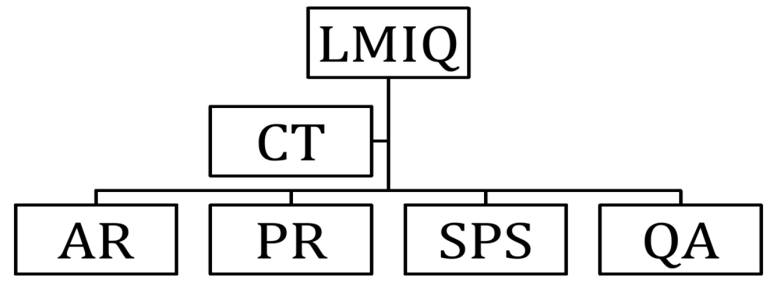A Brief Overview of Logical-Mathematical Intelligence
DOI:
https://doi.org/10.64663/aet.44Keywords:
CHC Theory, Cognitive Abilities, Logical-Mathematical Intelligence (LMIQ), Gardner’s Theory of Multiple Intelligences (TMI)Abstract
Gardner’s Theory of Multiple Intelligences (TMI) provides a comprehensive framework for understanding human cognition by recognizing various distinct intelligences. This perspective underscores the complexity and diversity of cognitive abilities and offers valuable implications for education, personal development, and the appreciation of diverse talents. Among these intelligences, Logical-Mathematical Intelligence (LMIQ) stands out as a crucial cognitive skill that underpins systematic reasoning and quantitative analysis. LMIQ is essential in fields such as mathematics, science, engineering, and finance, illustrating its significance across both academic and practical domains. Understanding and fostering LMIQ in educational settings can enhance learning experiences and help individuals apply their strengths in various contexts. Additionally, the Cattell-Horn-Carroll (CHC) theory provides a useful framework for dissecting cognitive abilities related to mathematics and numeracy, aiding in the effective teaching and learning of these skills
References
Almeida, L. S., Prieto, M. D., Ferreira, A. I., Bermejo, M. R., Ferrando, M., & Ferrándiz, C. (2010). Intelligence assessment: Gardner’s multiple intelligence theory as an alternative. Learning and Individual Differences, 20(3), 225-230. https://doi.org/10.1016/j.lindif.2009.12.010 DOI: https://doi.org/10.1016/j.lindif.2009.12.010
Da Fonseca, D., Cury, F., Bailly, D., & Rufo, M. (2004). Role of the implicit theories of intelligence in learning situations. L'encephale, 30(5), 456-463. https://doi.org/10.1016/s0013-7006(04)95460-7 DOI: https://doi.org/10.1016/S0013-7006(04)95460-7
Davis, K., Christodoulou, J., Seider, S., & Gardner, H. (2011). The theory of multiple intelligences. In R. J. Sternberg & S. B. Kaufman (Eds.), The Cambridge handbook of intelligence (pp. 485–503). Boston, MA: Cambridge University Press. https://doi.org/10.1017/CBO9780511977244.025 DOI: https://doi.org/10.1017/CBO9780511977244.025
Elena, A. L., & Suzana, M. S. (2016). John Dewey’s educational theory and educational implications of Howard Gardner’s multiple intelligences theory. International Journal of Cognitive Research in Science, Engineering and Education, 4(2), 57-66. https://doi.org/10.5937/IJCRSEE1602057A DOI: https://doi.org/10.5937/IJCRSEE1602057A
Gardner, H. E. (1983). Frames of mind: The theory of multiple intelligences. New York, NY: Basic Books.
Gardner, H. E. (2008). Multiple intelligences: New horizons in theory and practice. New York, NY: Basic Books.
Gardner, H., & Hatch, T. (1989). Educational implications of the theory of multiple intelligences. Educational Researcher, 18(8), 4-10. DOI: https://doi.org/10.3102/0013189X018008004
Gilman, L. (2001). The theory of multiple intelligences. Indiana University, Bloomington, IN. Retrieved from: https://web.archive.org/web/20121125220607/
Gordon, L. M. (2006). Gardner, Howard (b.1943-n.d.). In N. J. Salkind (Ed.), Encyclopedia of human development (Vol. 2) (pp.552-553). Thousand Oaks, CA: SAGE.
Helding, L. (2009). Howard Gardner's theory of multiple intelligences. Journal of Singing, 66(2). Retrieved from: https://search.proquest.com/openview/ca351 bfbbcd74ce0/1.pdf?pq origsite=gscholar&cbl=971
Kissane, B. (2012). Numeracy: connecting mathematics. In B. Kaur & T. L. Toh (Eds.), Reasoning, communication and connections in mathematics: Yearbook 2012 (pp. 261-287). Singapore: Association of Mathematics Educators & World Scientific. https://doi.org/10.1142/9789814405430_0013 DOI: https://doi.org/10.1142/9789814405430_0013
Lane, S., Liu, M., Ankenmann, R. D., & Stone, C. A. (1996). Generalizability and validity of a mathematics performance assessment. Journal of Educational Measurement, 33(1), 71-92. https://doi.org/10.1111/j.1745-3984.1996.tb00480.x DOI: https://doi.org/10.1111/j.1745-3984.1996.tb00480.x
Lazaro-Quilang, L. J. . (2021). Code-switching: A catalyst of change in teaching college algebra. SPUP International Interdisciplinary Research Conference Journal, 1(1), 13-18. Retrieved from https://ojs.aaresearchindex.com/index.php/spupiircj/article/view/367
Liu, A. W., & Xie, G. H. (2024). The non-Cattell-Horn-Carroll (non-CHC) model of ancillary broad and narrow abilities. Asian Journal of Interdisciplinary Research, 7(1), 29-40. https://doi.org/10.54392/ajir2414 DOI: https://doi.org/10.54392/ajir2414
Mokhtar, I. A., Majid, S., & Foo, S. (2008). Teaching information literacy through learning styles: The application of Gardner's multiple intelligences. Journal of Librarianship and Information Science, 40(2), 93-109. https://doi.org/10.1177/0961000608089345 DOI: https://doi.org/10.1177/0961000608089345
Niroo, M., Nejhad, G. H. H., & Haghani, M. (2012). The effect of Gardner theory application on mathematical/logical intelligence and student's mathematical functioning relationship. Procedia-Social and Behavioral Sciences, 47, 2169-2175. https://doi.org/10.1016/j.sbspro.2012.06.967 DOI: https://doi.org/10.1016/j.sbspro.2012.06.967
Schneider, W. J., McGrew, K. S. (2012). The Cattell-Horn-Carroll model of intelligence. In D. P. Flanagan & P. L. Harrison (Eds.), Contemporary intellectual assessment: Theories, tests, and issues (pp. 99-144). New York, NY: Guilford Press.
Shirawia, N., Alali, R., Wardat, Y., Tashtoush, M.A., Saleh, S., & Helali, M.M. (2023). Logical Mathematical Intelligence and its Impact on the Academic Achievement for Pre-Service Math Teachers. Journal of Educational and Social Research, 13(6), 239-254. https://doi.org/10.36941/jesr-2023-0161 DOI: https://doi.org/10.36941/jesr-2023-0161
Sternberg, R. J. (2018). Theories of intelligence. In S. I. Pfeiffer, E. Shaunessy-Dedrick, & M. Foley-Nicpon (Eds.), APA handbook of giftedness and talent (pp. 145–161). Washington, DC: American Psychological Association. https://doi.org/10.1037/0000038-010 DOI: https://doi.org/10.1037/0000038-010

Downloads
Published
How to Cite
Issue
Section
License
Copyright (c) 2025 The Asian Educational Therapist

This work is licensed under a Creative Commons Attribution 4.0 International License.





